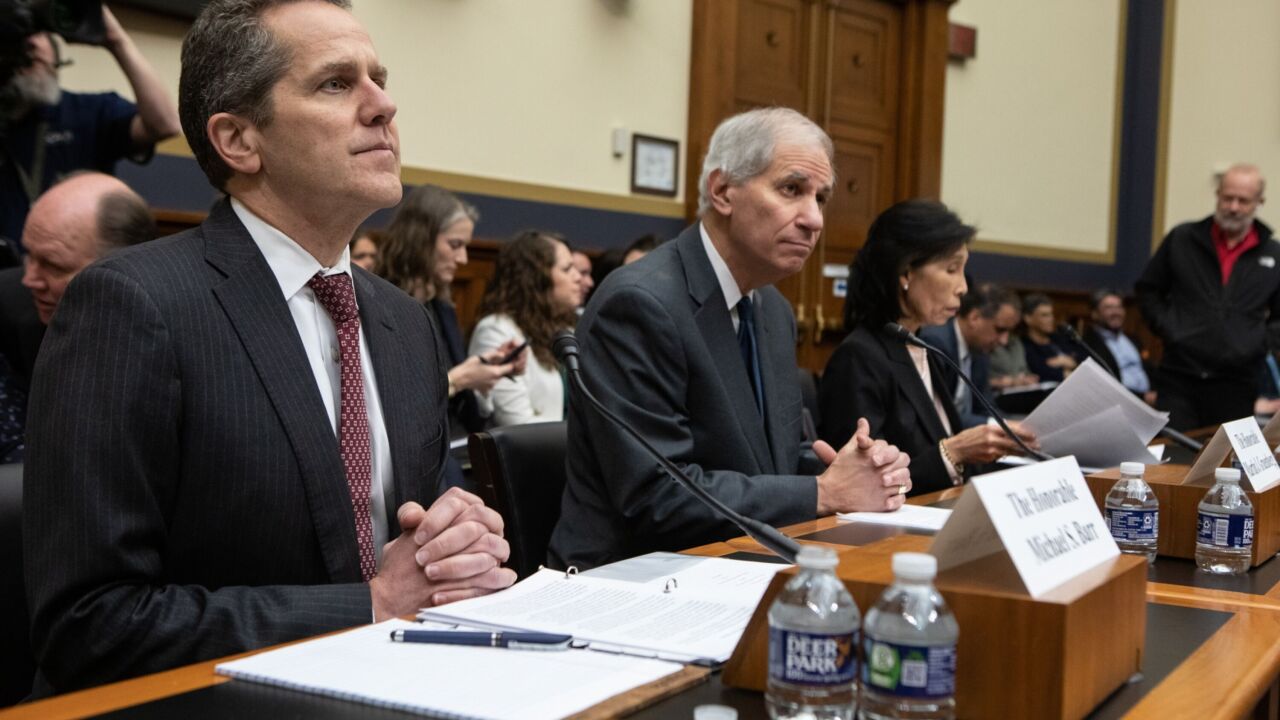
The Basel Committee on Banking Supervision is an informal organization consisting of the bank regulatory authorities and central banks from the world's leading economies. In the 1980s, the Basel Committee recognized that bank capital standards were not uniform among member countries, and that this created a competitive advantage to internationally active banks that were subject to lower capital requirements. The Basel Committee also recognized that the existing standards were not based on the risk inherent in a bank's portfolio, and, therefore, a bank with a low risk profile would be required to have the same minimum capital as a bank engaging in speculative ventures.
In 1988, the Basel Committee addressed both problems by approving a "risk-based capital framework" that established minimum capital requirements adjusted for the perceived risk of various types of bank assets. Thus, for example, more capital is required for a commercial loan than for a first mortgage loan, and more capital is required for a first mortgage loan than for a Treasury security. Since 1988, the Basel Committee has revised the risk-based capital framework several times, most recently in 2017, when the capital framework was substantially modified.
The Basel Committee does not have the authority to impose binding capital standards on U.S. banking organizations. Nevertheless, the governing body of the Basel Committee has unanimously stated that it expects full, timely and consistent implementation "of all elements" of the new 2017 Basel capital framework. U.S. banking regulators also have stated that they are committed to adopting capital regulations that will require at least as much capital as would be required under the Basel framework. In a joint press release dated September 9, 2022, all of the U.S. banking regulators, including the Federal Reserve, "reaffirmed their commitment to implementing enhanced regulatory capital requirements that align with the 2017 revision to the Basel capital framework. Furthermore, the Basel Committee warned that country-specific implementation of the Basel accord should not be used to revisit the policy decisions made by the committee in 2017.
However, constraining the discretion of the U.S. bank regulatory agencies in this manner is the antithesis of the statutorily mandated rulemaking process designed to ensure that agencies issue legally binding regulations only after considering all relevant comments. The governing statute, the Administrative Procedure Act (APA), requires regulatory agencies to publish notice of a proposed rule and "give interested parties an opportunity to participate through submission of written data, views, or arguments." Federal courts have consistently held that this opportunity for comment must be meaningful, and to satisfy this requirement that the agency must be open-minded. The courts have made it clear that if an agency predetermined the outcome of a rulemaking, the agency has effectively negated the right of the public to make meaningful comments on the proposal. Predetermination makes a mockery of the agency's obligation to conduct an open and fair rulemaking.
The banking agencies entered into an agreement with third parties when they committed to abide by the Basel capital framework, and essentially promised to use the Basel framework as the minimum capital requirements for U.S. banking institutions. This is exactly the type of predetermination that has been found by the courts to violate the APA.
Trade groups, analysts and some regulators want more data on how various regulatory changes and proposals would impact the banking sector in totality. But regulatory agencies have yet to take on such a project and private sector groups say the task is beyond their capabilities.
In Prometheus Radio Project v. F.C.C., the 3rd Circuit made clear that an agency must have an "open mind" about all of the issues raised in a rulemaking. The 10th Circuit, in Forest Guardians v. U.S. Fish and Wildlife, found predetermination when an agency "irreversibly and irretrievably commits itself to a plan of action, before it has completed the regulatory process." In International Snowmobile Manufacturers Ass'n. v. Norton, the court held that an official's public statements showed that the regulatory procedure was merely pro forma compliance to validate a prejudged political conclusion. And in Metcalf v. Daley, the 9th Circuit held that an agency's agreement with a third party invalidated a rulemaking since it committed the agency to a course of action prior to the initiation of the public comment process. This is directly on point here, where the agencies are committed to complying with the Basel agreement.
The Basel capital framework is an extrajudicial agreement entered into by the U.S. banking regulators. These federal agencies have no statutory authority to enter into international negotiations, or to bind the government of the United States or any governmental agency. Yet, the implementation of the Basel agreement in the U.S. will have enormous economic consequences for this country, affecting the costs and availability of mortgages, consumer and commercial loans, and the future viability of our banking system.
Because the Basel agreement was negotiated by agencies with no authority to bind the United States, it must be implemented through regulations. However, the banking agencies have already publicly committed that the Basel framework will be used as a "floor." Thus, the rulemaking process has been predetermined. The agencies will not consider alternatives, such as retaining the existing capital rules, or making modifications to the existing rules that may not be consistent with the latest versions of the Basel framework.
In sum, public statements and commitments made by the federal banking regulators indicate that they have predetermined the outcome of the rulemaking on this point, and they do not have an "open mind" to take any other course of action. Unless the agencies clearly state that they will consider all relevant alternatives, including retaining the current capital rules, or imposing less stringent requirements than required under the 2017 amendments to the Basel capital framework, the legality of the current rulemaking is questionable, at the very least.






